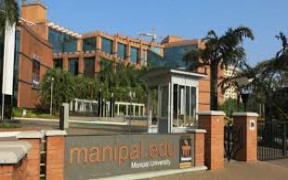Why Choose BSc Nuclear Medicine Technology in Bangalore
Bangalore stands at the forefront of healthcare education and innovation, offering exceptional resources for Nuclear Medicine Technology. With leading hospitals, research-focused imaging centers, and cutting-edge PET/CT and SPECT facilities, studying at a BSc Nuclear Medicine Technology College in Bangalore ensures immersive exposure to diagnostic imaging procedures, radiopharmaceutical preparation, and clinical research. This unique training environment prepares students for a vital role in patient-centered diagnostic services.
What Sets the Best BSc Nuclear Medicine Technology Colleges in Bangalore Apart
The Best BSc Nuclear Medicine Technology Colleges in Bangalore offer a harmonious blend of rigorous academics and practical training through:
-
Advanced Curriculum: Covering radiopharmacy, nuclear imaging principles, diagnostics, radiation physics, human anatomy, biochemistry, patient care, and regulatory guidelines.
-
Hands-On Clinical Experience: Regular rotations in PET/CT, SPECT, gamma imaging, and radiopharmacy labs enable students to operate cameras, prepare radiotracers, and assist with scans.
-
State-of-the-Art Lab Infrastructure: Facilities include shielded hot labs, radiopharmaceutical counters, dedicated gamma cameras, dose calibrators, and viewing workstations.
-
Faculty with Clinical Expertise: Skilled nuclear medicine technologists, radiopharmacists, medical physicists, and clinicians mentor students on patient handling, image acquisition, and safety protocols.
-
Active Industry Partnerships: Internships at diagnostic centers, hospitals, and research laboratories ensure practical immersion and strong placement prospects.
-
Career-Focused Support: Dedicated placement teams help graduates connect with imaging centers, hospitals, radiopharmacy units, and research institutions.
Eligibility & Admission Process
Most BSc Nuclear Medicine Technology Colleges in Bangalore require:
-
Completion of 10+2 with Physics, Chemistry, and Biology from a recognized board, typically with at least 50% marks (relaxed for reserved categories).
-
Admissions are often merit-based, with some institutions requiring entrance exams or interviews to evaluate scientific aptitude.
-
Admission windows usually fall between May and July, with courses starting in July or August.
Curriculum Structure & Learning Outcomes
A three-year BSc Nuclear Medicine Technology program blends classroom learning, lab training, and clinical exposure. Typical modules include:
-
Radiation Physics, Instrumentation & Detection
-
Radiopharmacy: Tracer Preparation & Quality Control
-
PET/CT, SPECT, and Gamma Camera Imaging Techniques
-
Anatomy & Physiology for Diagnostic Imaging
-
Radiation Protection, Safety Protocols & Regulatory Compliance
-
Radiobiology, Biochemistry & Radiopharmaceutical Chemistry
-
Patient Care: Positioning, Monitoring & Record-Keeping
-
Digital Imaging & Data Management
-
Research Methods & Statistical Analysis
-
Lab Rotations, Clinical Practicum & Case Presentations
By the end of this course, graduates can confidently prepare and administer radiotracers, handle imaging systems, uphold safety standards, and assist in diagnostic workflows.
Career Prospects & Job Market
Graduates from BSc Nuclear Medicine Technology Colleges in Bangalore can pursue careers in:
-
Nuclear Medicine Technologist at hospitals and imaging centers
-
Radiopharmacy Laboratory Technician
-
PET/CT & SPECT Imaging Specialist
-
Medical Imaging Data Analyst
-
Radiopharmaceutical Quality Control Specialist
-
Radiation Safety Officer (with requisite certification)
-
Research Assistant in Nuclear Medicine or Imaging Departments
-
Clinical Support Staff in Oncology, Cardiology, and Neurology units
-
Sales or Training Specialist for Diagnostic Equipment Manufacturers
-
Educator or Lab-Instructor in Allied Health Programs
Salary Outlook: Entry-level packages in imaging departments generally range from ₹3–6 LPA. With certification, clinical experience, and specialization, mid-career salaries may reach ₹7–10 LPA. Senior and managerial roles in diagnostics, radiopharmacy, or education may exceed ₹12 LPA.
How to Choose the Best College for BSc Nuclear Medicine Technology in Bangalore
Consider the following when evaluating institutions:
-
Accreditation & Approval: Ensure recognition by national health science councils and affiliation with a reputable university.
-
Clinical Lab Quality: Look for PET/CT, SPECT, radiopharmacy, and dose-calibration labs for hands-on training.
-
Faculty Experience: Skilled technologists, physicists, and radiopharmacists enhance educational quality.
-
Hospital Partnerships: Practical exposure through internships at diagnostic centers and hospitals strengthens employability.
-
Placement Success: Institutions with a strong track record of graduate employment in diagnostic imaging are ideal.
-
Student Reviews: Insights from current and past students on lab training, internship access, and practical skills are invaluable.
-
Focus on Safety: Verify robust radiation safety training and compliance with regulatory standards.
Fee Structure & Financial Aid
Annual tuition fees for BSc Nuclear Medicine Technology Colleges in Bangalore typically range from ₹80,000 to ₹2 Lakhs. Costs depend on infrastructure and clinical partnerships. Scholarships, merit-based concessions, flexible payment plans, and education loan assistance are commonly provided.
Application Tips & Suggestions
-
Highlight any volunteer or internship experience in hospital labs, diagnostic centers, or radiology departments.
-
Complete introductory certifications in radiation safety or medical imaging software.
-
Write a strong statement of purpose emphasizing interest in diagnostic technology, patient care, and safety compliance.
-
Brush up on fundamentals of radiation physics, anatomy for imaging, and lab best practices before interviews.
-
Attend open labs or demo sessions to evaluate equipment, faculty, and training facilities.
Final Thoughts
A BSc Nuclear Medicine Technology College in Bangalore offers a powerful mix of theoretical knowledge, practical imaging skills, and clinical exposure needed for sophisticated roles in healthcare diagnostics. Graduates are equipped to manage radiotracer handling, imaging procedures, and radiation safety with confidence. Opting for one of the Best BSc Nuclear Medicine Technology Colleges in Bangalore positions you at the intersection of healthcare and advanced imaging technology, enabling a rewarding career in diagnostic services, research, and patient-focused care.
List of Best BSc Nuclear Medicine Technology Colleges in Bangalore
There are nearly 2 best private BSc Nuclear Medicine Technology colleges in Bangalore, provide BSc Nuclear Medicine Technology.
Found 2 Colleges
Jain University Bangalore
Bangalore, Karnataka | Established: 1990
Affiliations: Private Institute | Accreditations: NAAC A++
Manipal University Bangalore
Bangalore, Karnataka | Established: 1953
Affiliations: Deemed University | Accreditations: NAAC A++
Enquire Now



